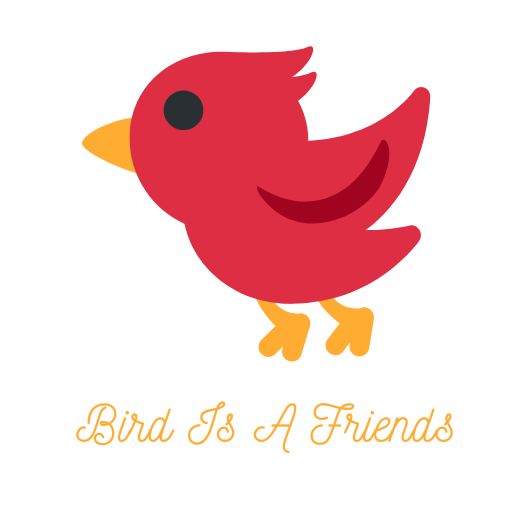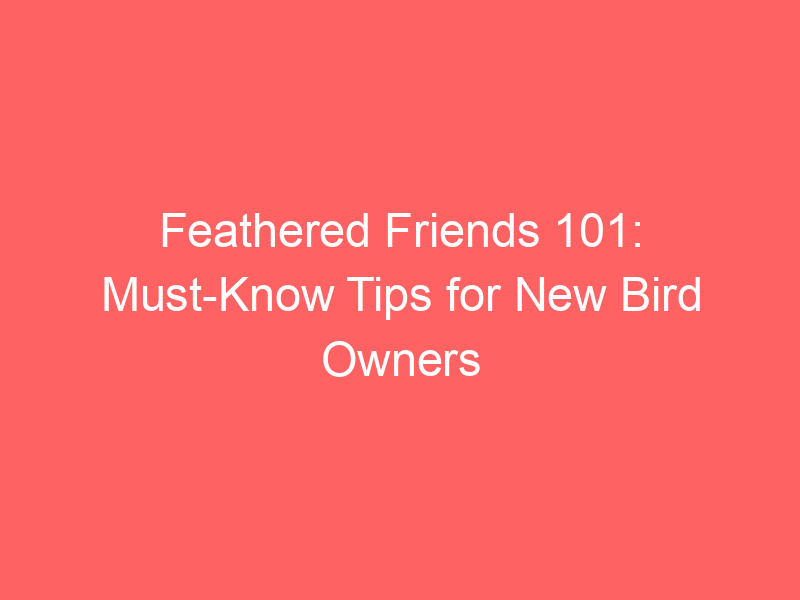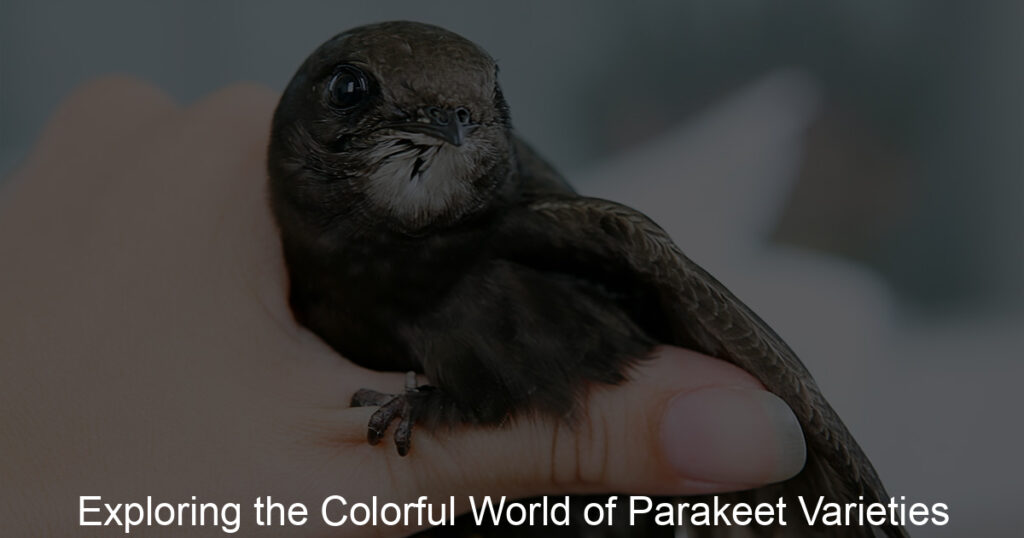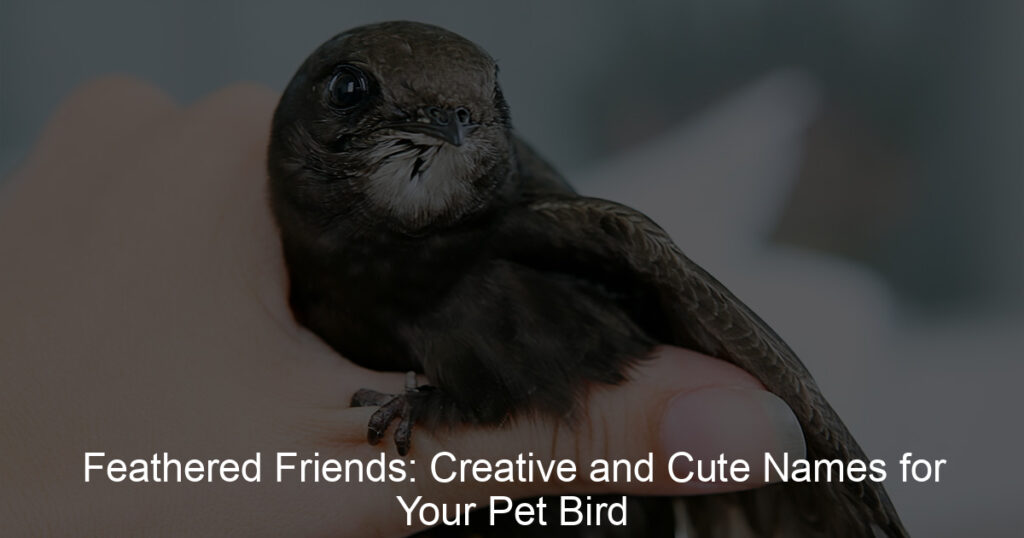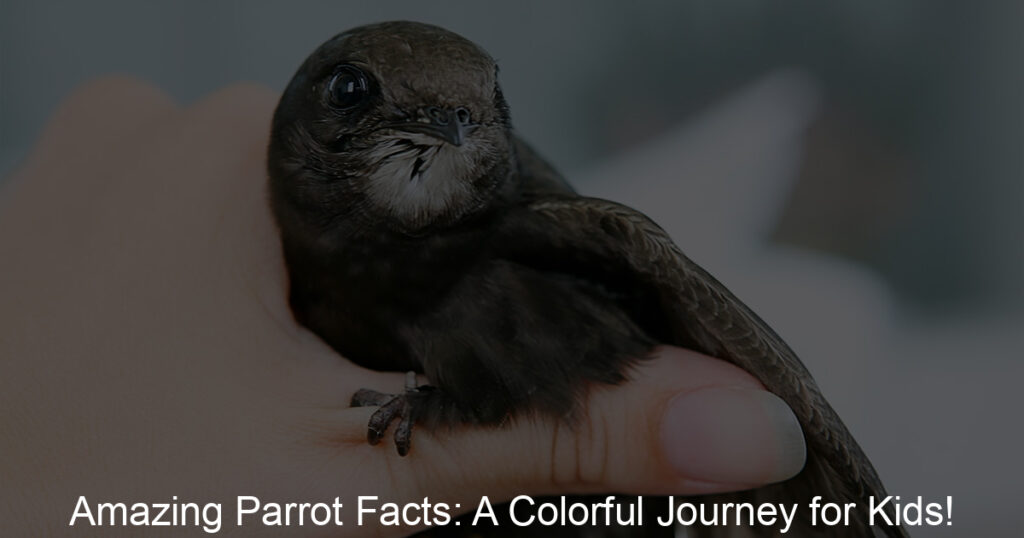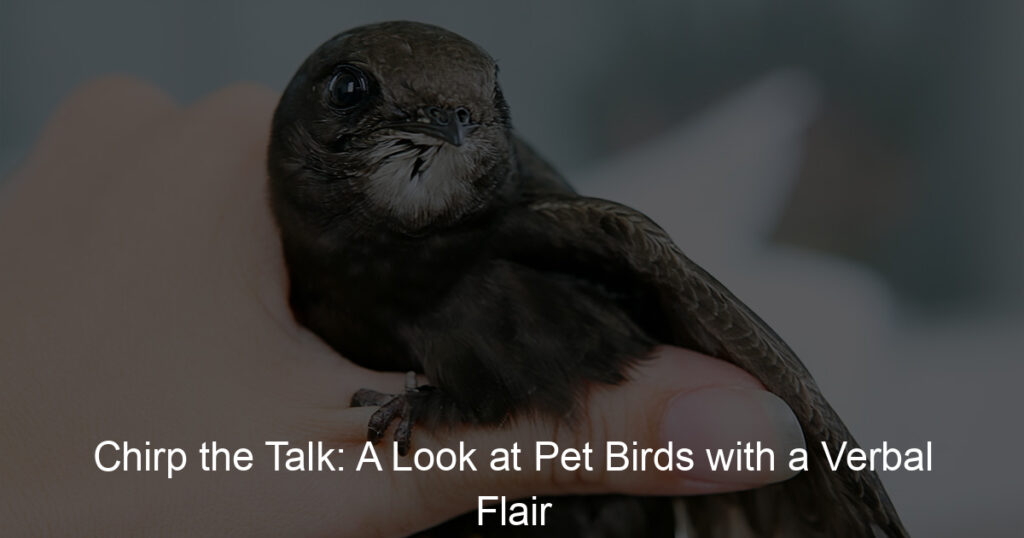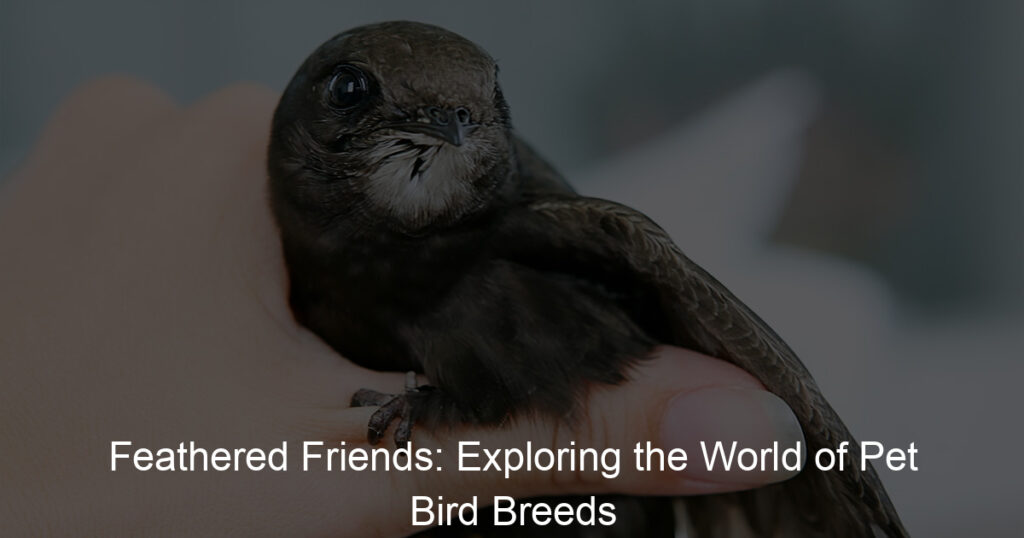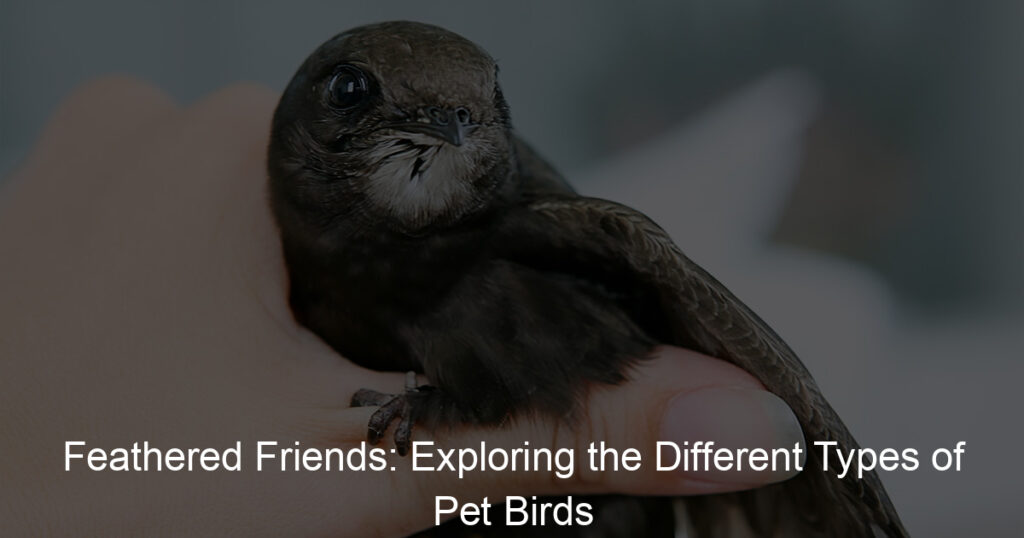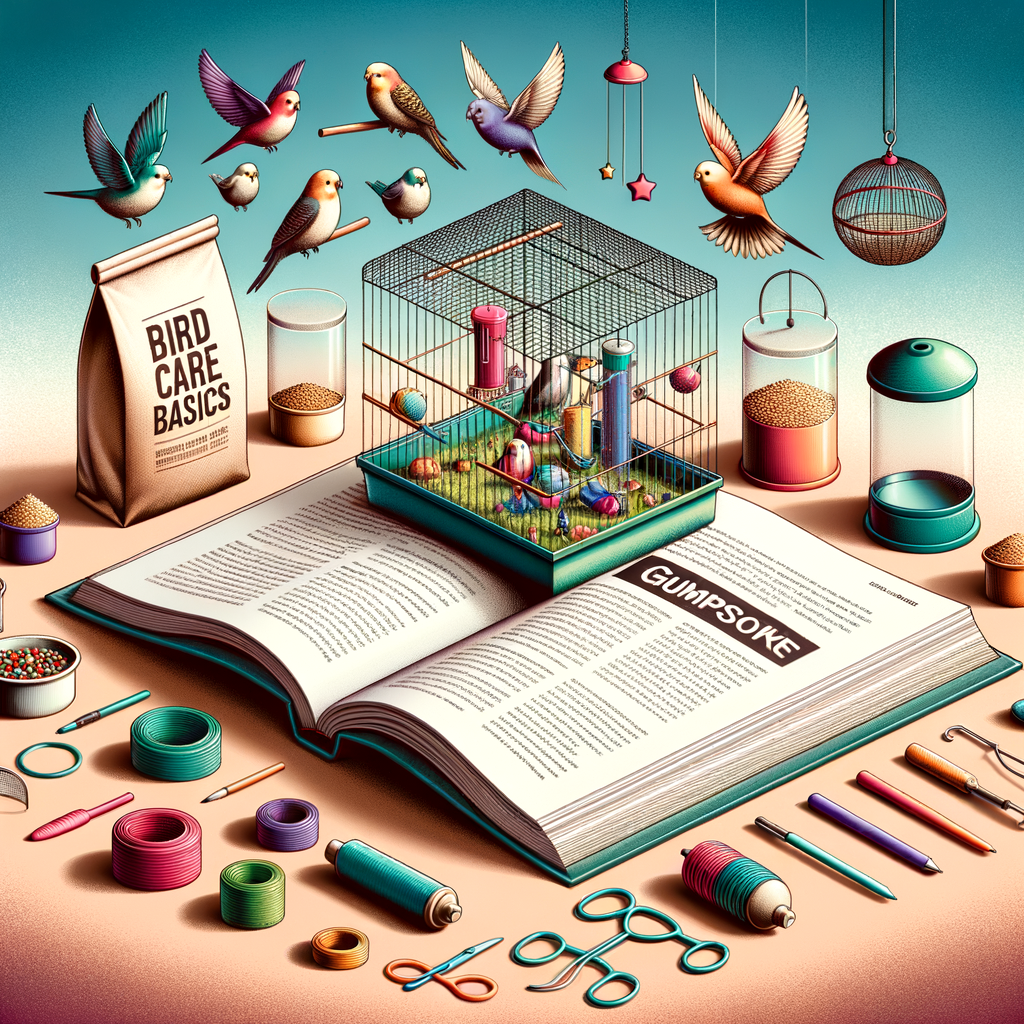
Introduction to Bird Care Basics
Welcome to the world of bird ownership! This journey is filled with joy, companionship, and learning. However, it also requires a deep commitment and understanding of your feathered friend’s needs. Let’s dive into the basics of bird care to ensure your pet bird lives a happy, healthy life.
- Understanding the Commitment of Bird Ownership
- Essential Knowledge for Bird Keepers: Lifespan, Diet, and Habitat
First and foremost, owning a bird is a long-term commitment. Depending on the species, birds can live anywhere from 10 to 80 years. This means that your bird might be with you for a significant part of your life. They require daily care, including feeding, cage cleaning, and social interaction. Birds are intelligent and social creatures, so they need mental stimulation and companionship. Neglecting these needs can lead to health issues and behavioral problems.
Understanding your bird’s lifespan is crucial. Smaller birds like budgies and canaries can live up to 10-15 years, while larger birds like parrots can live up to 80 years. This is a significant commitment and something to consider before bringing a bird into your home.
The diet of your bird is another important aspect of bird care. Birds cannot survive on seeds alone. They need a balanced diet that includes fresh fruits, vegetables, and bird-specific pellets. Some birds also require additional protein from sources like boiled eggs or cooked lean meat.
Lastly, the habitat of your bird plays a significant role in their health and happiness. Birds need a cage large enough to stretch their wings and fly short distances. They also need toys and perches to keep them entertained and active. The cage should be placed in a quiet, safe location away from drafts and direct sunlight.
Understanding these bird care basics is the first step towards becoming a responsible bird owner. In the following sections, we will delve deeper into essential bird care tips, feeding and nutrition, health and wellness, hygiene and grooming, common challenges, and key takeaways for beginners.
Essential Bird Care Tips for New Owners
One of the most important steps in becoming a bird owner is choosing the right bird. This decision should not be taken lightly, as it can greatly impact both your life and the life of your new feathered friend.
Choosing the Right Bird
There are several factors to consider when choosing the right bird for you. This includes the bird’s lifespan, size, and temperament. Each of these factors can significantly affect your experience as a bird owner.
- Factors to consider: lifespan, size, and temperament
- Common bird breeds for beginners
Firstly, the lifespan of a bird can vary greatly depending on the species. Some birds, like parakeets, can live up to 10-15 years, while others, like macaws, can live up to 60 years or more. It’s important to choose a bird whose lifespan aligns with your long-term commitment.
Secondly, the size of the bird is another crucial factor. Larger birds often require more space and care than smaller ones. They may also be louder and more active. On the other hand, smaller birds can be easier to handle, especially for beginners.
Lastly, the temperament of the bird is also important. Some birds are friendly and sociable, while others may be more independent or even aggressive. It’s essential to choose a bird whose temperament matches your lifestyle and comfort level.
For beginners, some bird breeds are more suitable than others. Budgerigars, or budgies, are small, friendly birds that are easy to care for, making them a popular choice for first-time bird owners. Cockatiels are also a good choice, as they are known for their friendly and gentle nature. Canaries, with their beautiful song and minimal handling requirements, can also be a great choice for beginners.
In conclusion, choosing the right bird is a crucial step in becoming a bird owner. By considering factors such as lifespan, size, and temperament, and opting for beginner-friendly breeds, you can ensure a rewarding and enjoyable bird ownership experience.
Creating a Safe and Comfortable Habitat
One of the most important aspects of bird care is creating a safe and comfortable habitat for your feathered friend. This involves choosing the right cage, setting up the cage environment, and considering the location and temperature.
- Choosing the Right Cage
- Setting Up the Cage Environment
- Location and Temperature Considerations
Choosing the right cage is the first step in creating a safe and comfortable habitat for your bird. The cage should be spacious enough for your bird to move around comfortably. It should also be made of sturdy, non-toxic materials to ensure your bird’s safety. A good rule of thumb is to choose a cage that is at least twice as wide and twice as tall as your bird’s wingspan.
Once you’ve chosen the right cage, it’s time to set up the cage environment. This includes adding perches, toys, and food and water dishes. Perches should be of varying sizes to help exercise your bird’s feet. Toys can provide mental stimulation and prevent boredom. Food and water dishes should be easy to clean and refill.
The location of the cage in your home and the temperature of the environment are also important considerations. The cage should be placed in a quiet, low-traffic area of your home, away from drafts and direct sunlight. The temperature should be kept between 65 and 80 degrees Fahrenheit, with humidity levels between 40% and 70%.
In conclusion, creating a safe and comfortable habitat for your bird involves careful consideration of the cage, its setup, and the environment. By following these guidelines, you can ensure that your bird is happy, healthy, and comfortable in its new home.
New Bird Owner Guide: Feeding and Nutrition
Feeding your new bird properly is crucial for its health and happiness. This guide will help you understand your bird’s dietary needs, choose the right bird food, and set a feeding schedule with appropriate portion sizes.
- Understanding a bird’s dietary needs
Just like humans, birds need a balanced diet to stay healthy. This includes proteins, carbohydrates, fats, vitamins, and minerals. The specific dietary needs can vary depending on the bird’s species, age, and health status. For example, parrots need a diet rich in fruits and vegetables, while canaries thrive on a diet of seeds and grains. Always research your bird’s specific dietary needs or consult with a vet.
- Choosing the right bird food
There are many types of bird food available, from seeds and pellets to fresh fruits and vegetables. Seeds are a common choice, but they should not make up the entire diet as they can be high in fat. Pellets are often a better choice because they are nutritionally balanced. Fresh fruits and vegetables can be a healthy addition to your bird’s diet, but avoid feeding your bird avocado, chocolate, or anything caffeinated as these can be toxic to birds.
- Feeding schedule and portion sizes
Most birds should be fed twice a day, once in the morning and once in the evening. The portion size depends on the bird’s size and species. A small bird like a budgie might only need a teaspoon of food per meal, while a larger bird like a macaw might need a cup or more. Remember to remove any uneaten food after a couple of hours to prevent it from spoiling. Always provide fresh water for your bird to drink.
| Bird Species | Dietary Needs | Portion Size |
|---|---|---|
| Parrot | Fruits, vegetables, and pellets | 1/2 to 1 cup per meal |
| Canary | Seeds, grains, and occasional fruits | 1 to 2 teaspoons per meal |
| Budgie | Seeds, pellets, and occasional fruits and vegetables | 1 teaspoon per meal |
Remember, every bird is unique and may have different dietary needs. Always monitor your bird’s health and adjust its diet as needed. When in doubt, consult with a vet.
Bird Ownership Essentials: Health and Wellness
When it comes to bird ownership, one of the most crucial aspects to consider is your feathered friend’s health and wellness. Maintaining a healthy bird involves regular health checks and understanding the signs of potential illness.
Regular Health Checks
Just like humans, birds also need regular health checks to ensure they are in the best possible condition. These checks are an essential part of bird care and can help prevent serious health issues.
- Importance of Regular Vet Visits
- Common Signs of Illness to Watch Out For
Regular vet visits are vital for your bird’s health. These visits allow the vet to monitor your bird’s weight, check for any physical abnormalities, and conduct necessary tests. According to a study, regular vet visits can help detect potential health issues early, increasing the chances of successful treatment. It’s recommended to take your bird to the vet at least once a year for a general check-up.
As a bird owner, it’s important to be aware of the common signs of illness in birds. These signs can include changes in behavior, loss of appetite, weight loss, changes in droppings, and difficulty breathing. If you notice any of these signs, it’s crucial to seek veterinary attention immediately. Early detection and treatment can significantly improve your bird’s chances of recovery.
Remember, a healthy bird is a happy bird. Regular health checks and understanding the signs of illness are key to ensuring your bird’s health and wellness.
Mental Health and Stimulation
Just like humans, birds also need mental stimulation to stay healthy and happy. This section will discuss the importance of toys and playtime, and how to teach your bird to socialize.
- Importance of Toys and Playtime
Toys and playtime are crucial for a bird’s mental health. They provide the necessary mental stimulation that keeps your bird engaged and prevents boredom. A bored bird can develop destructive behaviors and even health issues.
According to a study by the University of California, birds that are provided with toys and regular playtime show less aggressive behavior and are more active. They also tend to live longer, healthier lives.
| Benefits of Toys and Playtime |
|---|
| Provides mental stimulation |
| Prevents boredom |
| Reduces aggressive behavior |
| Increases activity levels |
| Promotes longer, healthier lives |
Remember, the toys you choose should be safe and suitable for your bird’s size and species. Rotate the toys regularly to keep your bird’s interest.
- Teaching Your Bird to Socialize
Socializing is another important aspect of a bird’s mental health. Birds are naturally social creatures and thrive in environments where they can interact with others.
Teaching your bird to socialize involves gradually introducing them to new people, pets, and environments. Start slow, allowing your bird to get comfortable with each new experience before moving on to the next. Reward positive interactions with treats and praise.
Remember, each bird is unique and will socialize at their own pace. Be patient and consistent, and your bird will eventually learn to enjoy social interactions.
In conclusion, mental stimulation through toys, playtime, and socialization is essential for your bird’s overall health and happiness. By providing these opportunities, you are ensuring a long, healthy, and fulfilling life for your feathered friend.
Basics of Bird Care: Hygiene and Grooming
Keeping your bird clean and well-groomed is an essential part of bird care. It not only keeps your bird looking its best, but it also helps to prevent health problems. Here, we will discuss the basics of bird hygiene and grooming, including cleaning your bird’s cage, bathing your bird, and taking care of its beak and nails.
- Cleaning your bird’s cage
- Bathing your bird
- Beak and nail care
The cage is your bird’s home, and like any home, it needs to be kept clean. Regular cleaning prevents the buildup of bacteria and parasites that can harm your bird. Start by removing and replacing the cage liner every day. Once a week, take out all toys and perches and wash the cage with warm soapy water. Rinse thoroughly to ensure no soap residue remains.
Most birds love to bathe, and it’s good for their feathers and skin. You can provide a shallow dish of water for your bird to splash in, or gently mist your bird with a spray bottle. Always use lukewarm water and avoid spraying directly into your bird’s face. Remember, bathing should be a fun and enjoyable experience for your bird, not a stressful one.
Just like our teeth and nails, a bird’s beak and nails can overgrow if not properly cared for. Overgrown beaks can interfere with eating, while long nails can cause discomfort and mobility issues. Most birds naturally keep their beak and nails trimmed through their daily activities, but sometimes they may need a little help. If you notice that your bird’s beak or nails are getting too long, consult with a vet or a professional bird groomer. Never attempt to trim your bird’s beak or nails yourself without proper training.
Remember, a clean and well-groomed bird is a happy and healthy bird. By following these basic hygiene and grooming tips, you can ensure that your feathered friend stays in top shape.
Caring for a New Bird: Common Challenges and Solutions
When you bring a new bird into your home, it’s essential to understand the common challenges you may face and how to address them. This section will focus on behavioral issues, a significant concern for many bird owners.
Behavioral Issues
Behavioral issues in birds can range from noise and aggression to difficulties with training. Let’s explore these challenges and discuss some effective solutions.
- Dealing with Noise and Aggression
- Training Your Bird
Birds are naturally vocal creatures, but excessive noise or aggression can be a sign of stress or discomfort. It’s crucial to create a calm and comfortable environment for your bird. This includes providing plenty of space for them to fly and explore, as well as toys to keep them entertained. If your bird continues to be noisy or aggressive, it may be worth consulting with a vet or a bird behaviorist.
Training a bird requires patience and consistency. Start with simple commands like “step up” or “come here.” Use positive reinforcement, such as treats or praise, to reward your bird for following the command. Remember, every bird is unique, and what works for one might not work for another. It’s essential to be patient and consistent, and to make training sessions a positive and enjoyable experience for your bird.
Understanding and addressing behavioral issues is a crucial part of bird care. With patience, consistency, and a loving environment, you can help your bird overcome these challenges and thrive in their new home.
Health Issues
When it comes to bird care, health issues are a significant concern. Birds can be affected by a variety of diseases, and emergency situations can arise unexpectedly. It’s crucial to be prepared and have a basic understanding of how to handle these situations.
- Dealing with Common Diseases
- Emergency Care: What to Do in a Crisis
Birds, like any other pets, can be prone to certain diseases. Some common diseases that birds can contract include Psittacosis, Avian Influenza, and Beak and Feather Disease. It’s important to recognize the symptoms of these diseases early on to provide your bird with the necessary care.
| Disease | Symptoms |
|---|---|
| Psittacosis | Difficulty breathing, watery droppings, loss of appetite |
| Avian Influenza | Swelling of the head, blue discoloration of the comb and wattles, coughing |
| Beak and Feather Disease | Loss of feathers, beak deformities, lethargy |
If you notice any of these symptoms, it’s crucial to consult with a vet immediately. Regular check-ups can also help in early detection and prevention of these diseases.
Emergencies can happen at any time. Your bird might get injured, ingest something harmful, or show signs of a serious illness. In such situations, it’s important to stay calm and act quickly.
First, remove any immediate danger. For example, if your bird has ingested a toxic substance, remove any remaining substance from its reach. Next, provide any first aid that you can. This might include cleaning a wound or keeping the bird warm. Finally, get your bird to a vet as soon as possible. Remember, time is of the essence in emergencies.
It’s a good idea to have a basic bird first aid kit at home, and the contact number of a vet who specializes in birds readily available.
Bird Care for Beginners: Key Takeaways
As we wrap up our comprehensive guide on bird care for beginners, let’s revisit some of the most crucial points we’ve covered. These key takeaways will serve as a quick reference for you as you embark on the rewarding journey of bird ownership.
- Recap of Essential Bird Care Tips
- Importance of Patience and Consistency in Bird Care
First and foremost, remember that your bird’s diet should be balanced and nutritious. Fresh fruits, vegetables, and high-quality bird feed are essential. Regular exercise and social interaction are also vital for your bird’s overall well-being.
Health and hygiene are another critical aspect of bird care. Regular vet check-ups, keeping the cage clean, and grooming your bird are all part of maintaining their health. Be on the lookout for any signs of illness, such as changes in behavior or appearance.
Patience and consistency are key when it comes to bird care. Birds are intelligent creatures and can sense your emotions. Therefore, it’s important to approach them with calmness and consistency. This will help build trust and form a strong bond between you and your feathered friend.
Remember, every bird is unique and may require different care routines. What works for one bird may not work for another. Therefore, patience is crucial as you learn about your bird’s specific needs and preferences.
In conclusion, bird care is a rewarding experience that requires commitment, patience, and love. By following the essential tips we’ve covered in this guide, you’ll be well on your way to providing a happy and healthy environment for your new pet.
